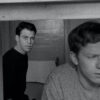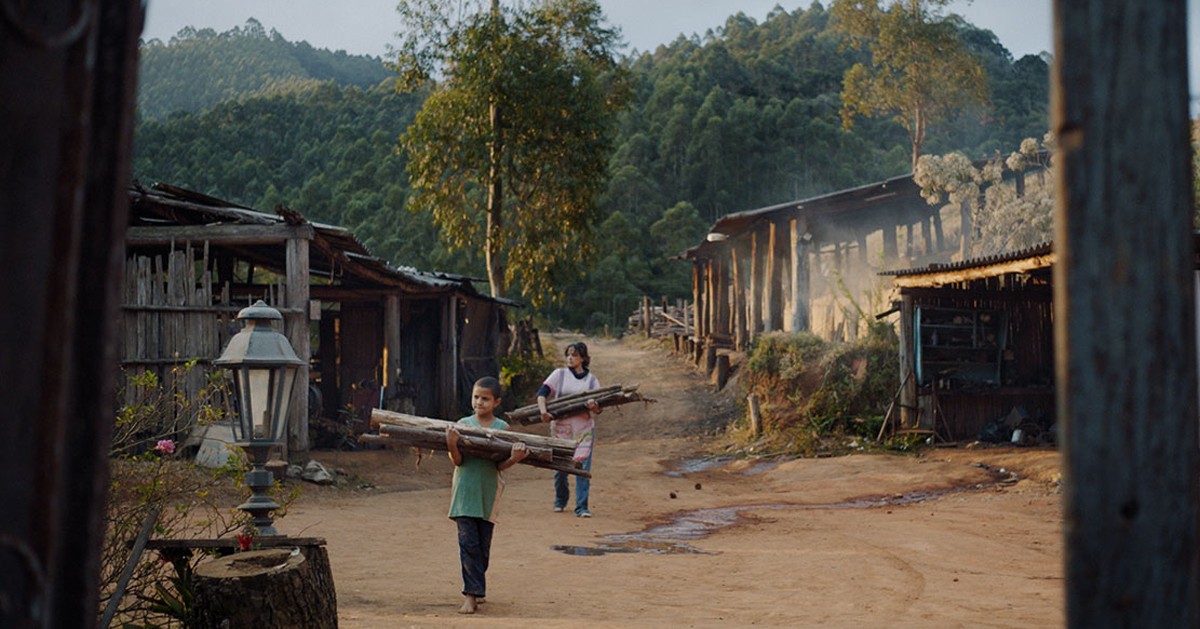The air above the charcoal factory, a humble collection of furnaces on a farm run by Irene (Maeve Jinkings) and Jairo (Rômulo Braga) in the countryside in “Charcoal,” can’t be all that clean, but it’s not the dust particulates that has the parents concerned about their young son Jean (Jean Costa), but rather the life that being around such a difficult business with so little reward could portend for him.
“I don’t want to contaminate my son’s heart with sadness,” Irene tells her hairdresser, a truth among many lies she is forced to start telling when she’s stumbled her way into a side hustle in Carolina Markowicz’s devious and devilishly fun feature debut.
Putting the future ahead of the present could have consequences that Irene can’t possibly imagine in “Charcoal” when boarding Miguel (Cesar Bordon), a criminal hiding out from the authorities may bring in some extra income, but introduces a whole host of other issues when he is the only one free to spend time with Jean as Irene and Jairo continue to make fire starter. An inferno would seem to be simmering just underneath the surface at all times for the clan, particularly their houseguest who is hardly pleased with his humble accommodations, and Markowicz is delighted to let the sparks fly.
Given the sophistication of the scheme that Irene runs at the insistence of an unassuming health care worker (Aline Marta) who cares for her father, it is no surprise that Markowicz is equally adept at executing big ideas, finishing not one but two features during the pandemic, of which “Charcoal” is just the first. The announcement of a major new talent, audiences thankfully won’t have to wait long for “Toll,” Markowicz’s second due to premiere next year, but “Charcoal” is bound to get the buzz going with its premiere this week at the Toronto Film Festival and we were fortunate to talk to the director about what ignited her interest in “Charcoal” and how finding the unique location changes the entire trajectory of the film, as well as her ongoing collaboration with leading lady Jinkings and the alchemy of mixing professional and nonprofessional actors.
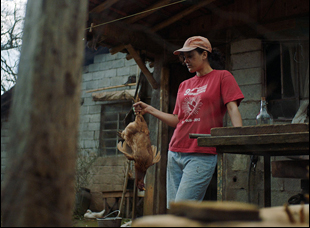
I grew up in the countryside in a place that is pretty close to the city portrayed in the film, and even nowadays, I go to the city a lot. I enjoy it very much and [I was interested in] all these conservative roles that people want to play and I tried to put all [these people in] family roles – the people that were beside it and the social oppression, everything. Most of it I made up, but it’s something that I remember pretty much feeling while I was a teenager.
Were you always interested in schemes? It seems like a starting place in your films.
It’s funny that you asked me that because probably I think I always been very fascinated with mafia films – the way people do something that is illegal and how they do that and how they live well with that and the social differences that make this kind of thing happen. So I have an obsession with them.
Does that make Maeve Jinkings your true partner in crime? I know you’ve worked with her before.
Yeah, I’ve always loved her and we had this project, “Charcoal,” for more than seven years. It took so much time for us to raise money, I had another film that’s for the next year called “Toll.” I was [looking at] some actresses [for that], but turns out that I thought it should be her, so I invited her to do the other film as well and lucky for me, she wanted to do it. She wanted to be in both films and we have a very good collaboration together.
César was also invited from the very beginning and [he and Maeve] are close to me. The other people in the cast, I did some tests with them first via Zoom because it was still that time that we couldn’t meet up with people personally and I fell in love with the other people that are in the film, with Romulo Braga, with Camila Márdila, with Aline Marta. We went to [the area] one month before the shooting, and we started creating the atmosphere and rehearsing. Besides the five main roles, all the people are nonprofessional actors from the city, including Jean [de Almeida Costa] the [son], who’s a boy who lives there. I fell in love with him at first sight. He’s not an actor and he didn’t intend to become one, but he’s amazing. Also the hairdresser, Kin, was my hairdresser when I was a kid.
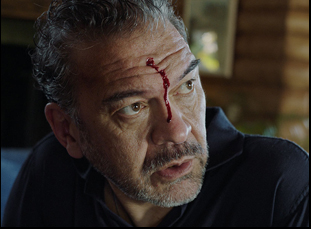
Totally. I’m a lover of things that you are not expecting, and of course, sometimes you get very angry or afraid, but I always think that the film asks for what it should be, and you should hear it. You should hear it in terms of locations – This wasn’t [originally set] in a charcoal factory at all – it didn’t have charcoal – but it turns out that the location manager came with the location that we absolutely loved and it was a charcoal factory. And lot of scenes were [reconceived] to the fact that it was a charcoal factory, but it wasn’t planned. Many other things during the [filming] that maybe actors were saying that didn’t sound that way [originally in the script, we said] “let’s create another one or let’s do it in another place or in another way. I always try to feel something that I think it’s good somehow and not to be literal to what I thought before. I don’t want to speak to what was written. I want to feel that it’s working.
I was amazed at how many cramped corners you’re getting the camera into. Did the environment inform how you wanted to shoot it? You get such interesting angles throughout.
We had some scenes that we were very specific about the framing and exactly how we wanted to be, and then there were some scenes with more energy – the crazier scenes where people were freaking out – that we wanted to be very freestyle, so we’d say we are going to come with the camera to this inside of the bathroom and let’s see what happens.” So it was very contradictory. I think it’s very similar to the way [some of] the cast are very experienced actors [mixed] with nonprofessional actors who didn’t even know what they were doing in a good way. The way we decided to shoot [where it was] specific shots with, “Let’s shoot this in a crazy way and see where the camera should go.”
I hope it’s not a spoiler to ask, but towards the end of the film there was an image that I thought must have been in your mind from the start. Now that you’re saying that you didn’t know it was a charcoal factory until you got there, I’m not sure but the arresting image of a tree that’s growing on top of the fire seems like a perfect metaphor for everything that’s happened. How did you come up with that shot?
To be perfectly honest, we did that in the last day of shooting. There were some extra scenes I wanted to do that were not in the script. Funny enough, we used all the scenes that were in the script, and of course, some didn’t go into the final cut, but one was that Jairo, the husband, is putting some wood in the fire and in this very moment when we are doing this shot, we looked at that oven, and we are like, “Oh my God, there’s a tree here, right above this furnace. It’s crazy. This is the metaphor about the fuel. Let’s shoot this now.” So it’s not something planned or something that we were looking for. It appeared in front of us.
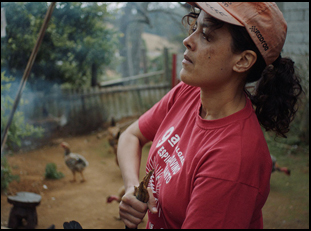
It was and I almost died. [laughs] It was very complicated for me to cope with that in less than a year to do a film. The pandemic hasn’t finished, but [filming “Toll”] was right after “Charcoal,” right after it was possible to come back to set and start shooting, so we had to use everything and it was very complicated even financially because of the money that went to pandemic things, so it was completely crazy. I cannot deny it, but I’m very happy with both films and with the actors. There’s another actress, Aline Marta, who plays the nurse in “Charcoal” and has a very important role in my other film as well. We had to work a lot, but it was quite mind-blowing.
“Charcoal” will screen again at the Toronto Film Festival at the Scotiabank at 6:45 pm on September 13th and 17th.

